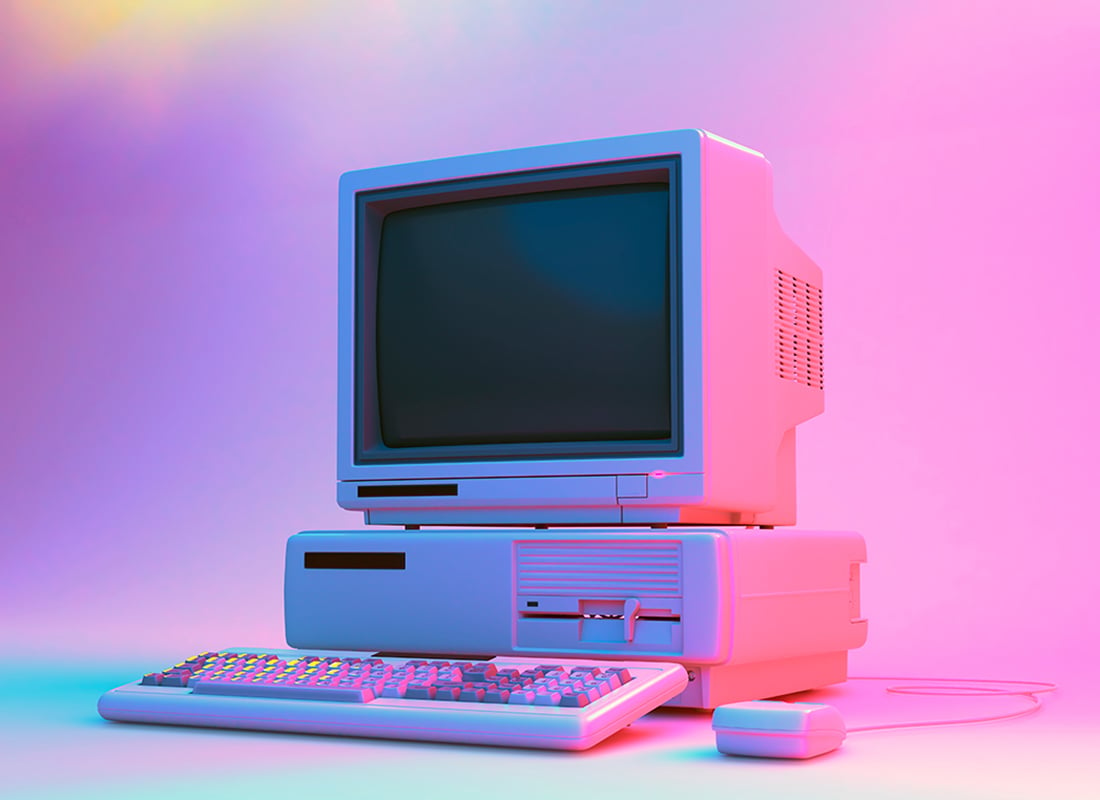I'm a lifelong gamer and follow developments of the gaming industry to (according to my wife) an unhealthy degree. I'm here today to share with you my insights into the future of gaming.
And here's the thing: I don't know.
I mean, I could tell you about some cool innovations: more immersive 3D experiences, artificial intelligence, accessibility, NFTs (shudder), streaming technology, mobile gaming – and so on. But I couldn't tell you with any conviction that these will come to define future generations of gaming.
My lack of insight in this area comes, possibly, from the fact that I am a lifelong gamer; experience has taught me there are things that I just can't predict.
Gaming obsession
My gaming obsession started in the early 80s. My dad bought a dodgy second-hand Commodore 16 that didn't work, but he took it to the local Dixons and convinced the manager to let him swap it for an Acorn Electron.
This new computer was my catalyst. Blown away by the potential of what it could do, I spent my teenage years obsessively playing and writing games. At the age of eighteen, I even had a (small) game published by the gods of Acorn gaming – Superior Software.
Every six months or so, I get a pang of nostalgia and fire up an emulator in an attempt to relive my youth. Of course, within half an hour the scales fall mercilessly from my eyes. With a few exceptions, early games are unbelievably frustrating, unforgiving experiences.
The Dark Souls/Elden Ring series – seen by some as the epitome of modern-day frustration in gaming – has many contrivances that early audiences just didn't have: your progress is regularly saved, you can travel quickly around the world, and – hey – you can actually load the game in under fifteen minutes.
And yet – why did I persevere back in the day?
For you
Be part of something bigger, join BCS, The Chartered Institute for IT.
I recently started up Elite – the intergalactic trading game that was a big hit on the BBC Micro and Acorn Electron. It's a good example of a game in which players could fill in the blanks with their imagination.
When it was first released, I remember reading magazines that were full of stories of Elite commanders describing their unique experiences adventuring around the game's galaxies. So-called ‘generation’ ships were part of the game's lore but never implemented in the original game – but that didn't stop many players believing they'd seen one.
It's these kinds of stories that make the experiences of the time a lot more powerful. Like any good book, our minds are excellent at filling in the blanks. But jump back in time with the benefit of forty years’ progress and you can see in stark contrast all the bits that were missing.
Indistinguishable from magic
Arthur C Clarke is often quoted as saying that any sufficiently advanced technology is indistinguishable from magic. Faced with a game like Elite, teenage me would have maybe asked for more colours on screen, an improved pixel density, or more than a single sound channel.
But, in terms of experience, I would have found it difficult to describe anything that would be better than what I had in front of me. I would not have been able to predict the innovations that typify today's AAA titles; Arthur C Clarke was right – they would have been indescribable, almost magical to me.
Since the 8-bit days, every successive generation of games has brought with it titles that have convinced me that we've reached the pinnacle of what gaming can do – whether that's through graphics, gameplay, controller mechanisms, or something else.
I remember thinking it with Super Mario World on the SNES, Wipeout 2097 on the Playstation, Halo on the Xbox... and so on. Then, every so often, along comes a new experience that completely blows me away, and once more I'm convinced that things can't get any better.
And this is why I've given up trying to predict the future of gaming: I already believe we're there. Until, of course, the next time something magical happens.


















